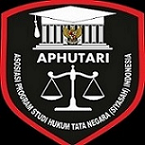Studi Living: Persepsi Masyarakat Terhadap Tradisi Bacaan Shalat Tolak Bala
Abstract
This article examines the perceptions of the people of Hutaraja Lamo Village, Sosa District, Padang Lawas Regency towards reading the prayer to reject reinforcements. This type of research is field research with a qualitative approach. The primary data sources in this article are religious leaders, traditional leaders, village heads, Naoso Nauli Bulung and the Hutaraja Lamo village community. While the secondary data comes from books, journal articles related to this article. for data collection techniques using observation, interviews and documentation, then analyzed using data analysis techniques is descriptive research. The results of this study indicate that the people of Hutaraja Lamo village, Sosa sub-district, Padang Lawas district believe that the community's understanding of the recitation of the prayer to reject reinforcements is selected verses (al-ikhlas, an-nas and al-falaq). As well as reciting three times after al-Fatihah, totaling four cycles, one greeting and having a bayati rhythm. The public's understanding of the recitation of the prayer against reinforcements may be carried out and there is no compulsion to carry it out. When there are conditions such as being overwritten by a disaster or a disease that does not go away. Then it is permissible to carry out the recitation of the prayer to repel reinforcements with the aim of asking forgiveness from Allah SWT. So by holding the recitation of the prayer to repel reinforcements, this is done with the intention because of Allah Ta'ala and surrendering to Him all illnesses will disappear forever. As for the people's reasons for reading the prayer to reject reinforcements, it must be done with confidence and surrender to Allah. The people also say that after reading the prayer to repel reinforcements, there is a change in the people who are sick, and all the calamities that have befallen us all will not come again. The reason for the community to carry out the recitation of the prayer to reject reinforcements must be with confidence and surrender to Allah.
Keywords
Full Text:
PDFReferences
Referensi
- a. Sumber Buku
Hasan Hanafi, Oposisi Pasca Tradisi, Yogyakarta: Sarikat, 2003.
M. Burhan Bungin, Penelitian Kualitatif, (Jakarta: PrenadaMedia Gruop, 2007).
Lexi J, Moloeng, hlm. 5 Lexi J, Moloeng, Metode Penelitian Kualitatif, (Bandung: Remaja RosdyKarta, 2006).
- b. Sumber Jurnal
Tri Wahyuni dan Indah Sri Pinasi, Perubahan Tradisi Wiwiwtan Dalam Era Modernisasi, (Study Pada Masyarakat Petani Desa Balak, Kecamatan Cawas, Kabupaten Klaten), Jurnal Pendidikan Sosiolog, Uinversity Yogyakarta Vol. 7 No. 3 Tahun 2018.
Buhori, “Islam Dan Tradisi Lokal Di Nusantara (Telaah Kritis Terhadap Tradisi Pelet Betteng Pada Masyarakat Madura Dalam Perspektif Hukum Islam), Jurnal Al-Maslahah Vol. 13, No. 02 Oktober 2017.
Anik Tri Wahyuni dan Indah Sri Pinasi, " Perubahan Tradisi Wiwitan dalam Era Modernisasi, (Studi Masyarakat Petani Desa Balak, Kecamatan Cawas, Kabupaten Klaten), Jurnal Pendidikan Sosiolog, Univesity Yogyakarta Vol. 7, No. 3 Tahun 2018.
Abdul Gafur, dkk, Agama, Tradisi Budaya dan Peradaban, Tamaddun: Jurnal Kebudayaan dan Sastra Islam, Vol. 21 No. 2, 2021.
Ken Izzah Zuraidah dan Arief Sudrajat, “Fenomena Perubahan Tradisi Rebo Wekasan (Studi Kasus Masyarakat Suci, Gresik),” Al-Mada: Jurnal Agama Sosisal Dan Budaya Vol 5, No. 2, 2022.
c. Sumber Lainnya
Parlaungan hasibuan, Wawancara Dengan Tokoh Adat, Hutaraja Lamo: Rumah, Tanggal 28 Mei 2022.
Ustadz Ali Jamasi Gulo. “Wawancara Dengan Masyarakat Desa Hutaaja Lamo: Rumah, Tanngal 13-14 January 2023.
H Tongku Imam Nawawi Daulay, Wawancara Dengan Tokoh Agama dan Selaku Imam Pembawa Shalat Tolak Bala, Hutaraja Lamo: Rumah, Tanggal 13-14 Januari 2023.
DOI: https://doi.org/10.24952/el-thawalib.v5i1.10859
Refbacks
- There are currently no refbacks.









Editorial Office Board :
Kampus UIN Syekh Ali Hasan Ahmad Addary Padangsidimpuan
Jl. T Rizal Nurdin No.Km 4, RW.5, Sihitang, Padangsidimpuan Tenggara, Kota Padang Sidempuan, Sumatera Utara 22733
 Jurnal El-Thawalib is licensed under a Creative Commons Attribution-ShareAlike 4.0 International License.
Jurnal El-Thawalib is licensed under a Creative Commons Attribution-ShareAlike 4.0 International License.
View My Stats






